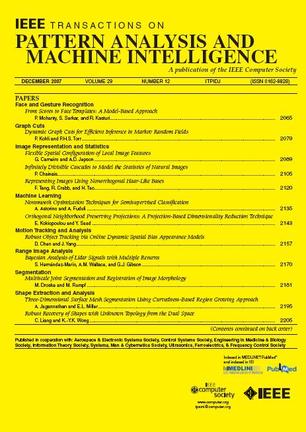Towards Reliable and Faithful Explanations: A Disentanglement-Augmented Approach for Selective Rationalization.
IF 20.8
1区 计算机科学
Q1 COMPUTER SCIENCE, ARTIFICIAL INTELLIGENCE
IEEE Transactions on Pattern Analysis and Machine Intelligence
Pub Date : 2025-07-24
DOI:10.1109/tpami.2025.3592313
引用次数: 0
Abstract
The pursuit of model explainability has prompted the selective rationalization (aka, rationale extraction) which can identify important features (i.e., rationales) from the original input to support prediction results. Existing methods typically involve a cascaded approach with a selector responsible for extracting rationales from the input, followed by a predictor that makes predictions based on the selected rationales. However, these approaches often neglect the information contained in the non-rationales, underutilizing the input. Therefore, in our prior work, we introduce the Disentanglement-Augmented Rationale Extraction (DARE) method, which disentangles the input into rationale and non-rationale components, and enhances rationale representations by minimizing the mutual information between them. While DARE demonstrates strong performance in rationalization, it may still rely on shortcuts in the training distribution, leading to unfaithful rationales. To this end, in this paper, we propose Faith-DARE, an extension of DARE that aims to extract more reliable rationales by mitigating shortcut dependencies. Specifically, we treat the non-rationale features identified by DARE as environments that are decorrelated from the predictions. By shuffling and recombining these environments with rationales, we generate counterfactual samples and identify invariant rationales that remain predictive across shifted distributions. Extensive experiments on graph and textual datasets validate the effectiveness of Faith-DARE. Codes are available at https://github.com/yuelinan/DARE.走向可靠和忠实的解释:选择性合理化的解纠缠增强方法。
对模型可解释性的追求促使了选择性合理化(即基本原理提取),它可以从原始输入中识别重要特征(即基本原理)以支持预测结果。现有的方法通常包括一个级联方法,选择器负责从输入中提取基本原理,然后是一个预测器,根据所选的基本原理进行预测。然而,这些方法往往忽略了非基本原理中包含的信息,没有充分利用输入。因此,在我们之前的工作中,我们引入了Disentanglement-Augmented Rationale Extraction (DARE)方法,该方法将输入分解为基本原理和非基本原理组件,并通过最小化它们之间的相互信息来增强基本原理表示。虽然DARE在合理化方面表现出色,但它可能仍然依赖于训练分布中的捷径,导致不忠实的合理性。为此,在本文中,我们提出了Faith-DARE,这是DARE的扩展,旨在通过减轻快捷依赖关系来提取更可靠的基本原理。具体来说,我们将DARE识别的非基本原理特征视为与预测无关的环境。通过将这些环境与基本原理进行洗牌和重组,我们生成了反事实样本,并确定了在移位分布中保持预测性的不变基本原理。在图形和文本数据集上的大量实验验证了Faith-DARE的有效性。代码可在https://github.com/yuelinan/DARE上获得。
本文章由计算机程序翻译,如有差异,请以英文原文为准。
求助全文
约1分钟内获得全文
求助全文
来源期刊
CiteScore
28.40
自引率
3.00%
发文量
885
审稿时长
8.5 months
期刊介绍:
The IEEE Transactions on Pattern Analysis and Machine Intelligence publishes articles on all traditional areas of computer vision and image understanding, all traditional areas of pattern analysis and recognition, and selected areas of machine intelligence, with a particular emphasis on machine learning for pattern analysis. Areas such as techniques for visual search, document and handwriting analysis, medical image analysis, video and image sequence analysis, content-based retrieval of image and video, face and gesture recognition and relevant specialized hardware and/or software architectures are also covered.

 求助内容:
求助内容: 应助结果提醒方式:
应助结果提醒方式:


